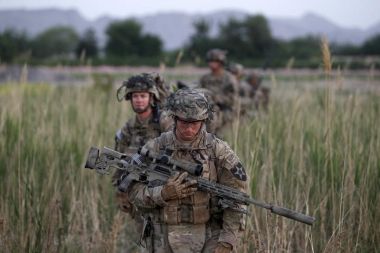U.S. forces get green light to attack ISIS fighters in Afghanistan; critics ask: Why only now?

U.S. military forces are now authorised to go on offensive against Islamic State (ISIS) fighters in Afghanistan.
The change in the rules of engagement for U.S. forces comes after the U.S. State Department designated ISIS-K (ISIS-Khorasan) in Afghanistan and Pakistan as a foreign terror organisation last week, CNN reported, citing U.S. defence officials.
ISIS-K is reportedly the ISIS branch in Afghanistan and Pakistan that is believed to be responsible for suicide and small-arms attacks and kidnappings, targeting civilians and Afghan government officials.
"The change now means that U.S. forces can actively pursue ISIS elements and attack them as a threat to the United States. Previous rules of engagement required ISIS elements to first pose a threat to U.S. forces in the area or to be pursued as part of a specific counterterrorism mission," U.S. officials said.
"The consequence of the State Department designation is that there is a prohibition against knowingly providing, or attempting or conspiring to provide, material support or resources to this organisation,'' they added.
The officials said the extended group, who has pledged allegiance to ISIS leader Abu Bakr al-Baghdadi, was formed a year ago. They mainly include individuals who defected from Tehrik-e Taliban (TTP) and Afghan Taliban. It is led by Hafez Saeed Khan, a former member of the TTP.
The recent development, however, did not sit well with some officials of the government.
Rep. Mac Thornberry, R-Texas, the chairman of the House Armed Services Committee, slammed the White House for not changing the rules of engagement sooner, CNN said.
"It shouldn't have taken a year for the White House to identify ISIS as a threat in Afghanistan and authorise our forces to engage them," Thornberry said in a statement.
"In fact, the committee understands that our military made two requests last year to combat this emerging ISIS threat, the first dating back to February 2015. Once again, the President's inaction and denial of the ISIS threat has only resulted in its growth and put our troops and our Afghan partners at greater risk."











